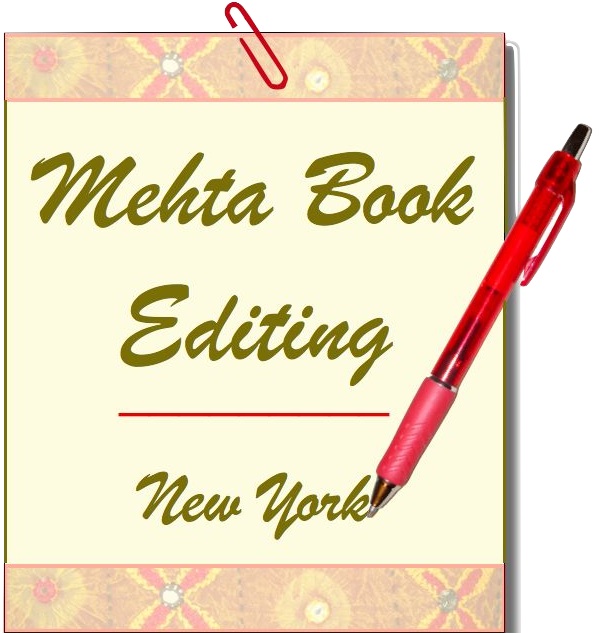Switching Genres, Categories & More: How Annabel Monaghan Has Scripted Her Own Publishing Path
/I’m delighted to share my Q&A with Annabel Monaghan, who was my author at Simon & Schuster back in 2007 when I acquired her manuscript for Click!: The Girl’s Guide to Knowing What You Want and Making it Happen. In a rare move, my department ended up rushing it to publication six months after acquisition. Even more remarkable, however, is how Annabel has built such a successful writing career in spite of changing genres, categories, agents, and publishers. She’s also tried her hand at both self-publishing and traditional publishing. Since it’s often harder to stay in the publishing field than it is to break in, I thought I would interview Annabel about the books she’s written over the years and how she landed her latest deal. Clearly, the title of her first book is fitting, as she found a way to make all this happen, in spite of the odds!
Sangeeta Mehta: Your first traditionally published book, a work of nonfiction for teen girls titled Click!, was written with a co-author, Elisabeth Wolfe. How did you come up with the idea, and had you planned to write teen nonfiction before you drafted a book proposal?
Annabel Monaghan: I had planned nothing at all! Elisabeth and I had an idea for a book about positive thinking for teenage girls, and after we had that idea, I planned to go to the grocery store and never think about it again. But Elisabeth is wonderfully persistent and kept bringing it up. I finally gave in and we started writing. When we found our wonderful editor (ahem!), I was so grateful to Elisabeth for really believing in it.
You went on to publish two more books for teen audiences, A Girl Named Digit and Double Digit, but these are works of fiction. What was it like to switch from nonfiction to fiction and from co-writing a book to writing solo? Did you receive any pushback from industry professionals for making this transition instead of continuing on as a nonfiction writer?
I didn’t have any pushback from the industry; I don’t think anyone really noticed what I was doing. But I had more fun writing fiction, because I could just go as far as my imagination would take me. In fiction you don’t have to explain yourself, you just have to tell the story. I also really liked working on my own, because I could hold the whole thing in my head at once. For me, too much planning kills the magic, and collaborating requires planning.
You’ve also self-published a book, Does This Volvo Make My Butt Look Big?, and this must have been a very different experience from working with a traditional publisher. Could you give us a sense of how?
I really enjoyed that self-publishing experience. Like a lot. It was as if I was running a small business where I manufactured and marketed a book, and I was in charge of all the decisions. Of course, I’m not great with details and got myself into all kinds of pickles, but it was a fun thing to dive into. More than anything, I now really understand why publishing houses employ so many people!
You found a new agent for your forthcoming novel for adults, Nora Goes Off Script. Could you share any information about what it was like to part ways with your previous agent and sign with someone new? Changing editors and publishers is fairly standard for writers, but do you think it’s become just as common to change agents?
It was a really weird thing. I loved my old agent, still do. I sent her my manuscript in August and in January she still hadn’t looked at it. She had a ton going on. I was really excited about this new book and really wanted to get it out there, so I finally sent it to another agent who took it on right away. I emailed my old agent to tell her, and it totally felt like breaking up, but she was very gracious about it. I don’t hear about people leaving their agents very often. It’s tricky when you’ve worked with someone and have become friends but you know it’s time to separate.
You also teach a novel writing class and write a humor column. Is it challenging to wear different hats? Or do you find that these other jobs, in addition to parenting, give you the time and space to come up with new ideas for your books?
I stopped teaching novel writing a few years ago (okay, I need to update my website!) for exactly that reason. I was getting so neck deep in all my students’ novels that I wasn’t writing anything myself. The space in my head where I like to daydream about my own characters was full. As for my column, that doesn’t feel like a distraction – it’s more of a place for me to make sense of what’s happening in my actual life. My children make their way into that column and also very much into the children in Nora Goes Off Script. In that sense, I guess they’re helping.
Do you have any tips for writers who are looking to establish a long-term writing career?
The obvious things – read and write all the time. But also: start simple. Try writing a novel that starts on a Monday and ends on a Sunday, where time moves in a straight line. I’ve seen a lot of people try to write a first novel with multiple perspectives and shifting decades, and it’s just a tough place to start. When you have that simple, clean story, the one that’s easy to describe in an elevator, then go find your agent.

